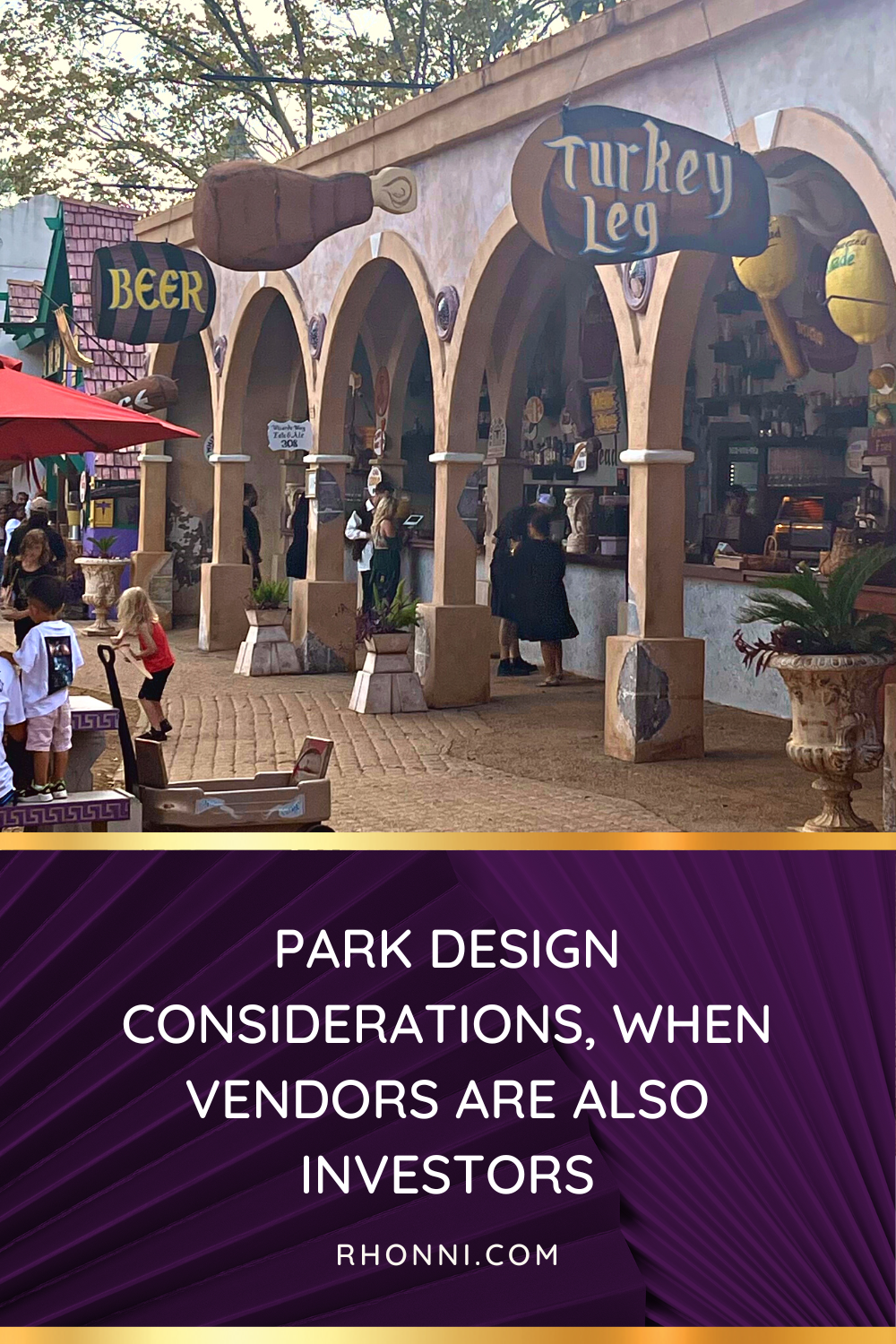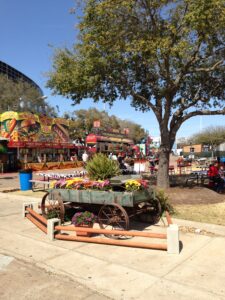 While I believe it differs little from a shopping mall lease agreement, the agreement between Vendors and Renaissance Festival Management involves the Vendor building and maintaining a structure on the Festival’s property, then paying a show fee to vend from that building during the event. (Mall leases involve Lessors paying for their own “build-out”; then paying rent for that space.)
While I believe it differs little from a shopping mall lease agreement, the agreement between Vendors and Renaissance Festival Management involves the Vendor building and maintaining a structure on the Festival’s property, then paying a show fee to vend from that building during the event. (Mall leases involve Lessors paying for their own “build-out”; then paying rent for that space.)
This makes for an interesting dynamic, where the vendors who “own” their buildings share the responsibility of park maintenance where their buildings are concerned. Part of their agreement with the Festival is that they will maintain the building according to park wishes. However, Vendors are expected to take initiative in building maintenance for the betterment of the park.
In the vendor mix are shops referred to as Temporaries, or Temp Booths. These vendors are commonly dissed by shop owners as folks who don’t make real investments in the parks. However, some businesses not only fit better conceptually in a tent, they add a theatrical element to the lanes that is necessary for the park theme. It is difficult to tell the difference between a tent-user who is in a tent because it works best for the theme, and a tent-user who doesn’t want to sink money into someone else’s real estate.
Part of the disquiet that building owners have toward tent users, is related to the shared responsibility of park maintenance. How can Festival Management share the park beautification responsibilities with tent users, so that building owners do not feel unfairly targeted when told to repaint or landscape their booths? We can look to State Fairs for guidance. They are making entertainment spaces out of parking lots and roads, managing to import enough large plants to create lavish break spaces that only last a few weeks. I strongly doubt that the carnival company chooses to buy all of those lush plants on their own. They buy the plants because they want to land the contract with the state fair next year.

Landscaping by the carnival company at the Houston Livestock Show and Rodeo 2013
There is another way to get value for the building owners. (Let’s call them co-investors.) Temporary booths are most often located as a 360*. In other words, they are not on a booth line, but out in the middle of a lane somewhere. These temporary booths can and should be used as bumpers. Think of a pinball game. Now think of permanent shops as the targets where points are earned. Placement of temporary booths should benefit the folks who are sharing the responsibilities of park maintenance. Park layouts with cul-de-sacs necessitate bumpers, but they have value in other situations as well.
When a group of neighboring shops communicate that their income or traffic is diminished (or their numbers reflect it to management in the case of shows with a percentage-based fee), relocation of the pinball bumpers can be used to try and redirect traffic to that underserved area. (As an aside, for Vendor Coordinators who might have to deal with push-back from 360* vendors who could get moved around a lot … those Vendors could always choose to invest in the show and have a permanent location.)
Carrying the pinball metaphor further, if everyone is doing their job correctly, Guests (the pinballs) are so entertained that they are bounced from park element to park element without realizing that park design and entertainment are steering their path. Perhaps we can consider the entertainment schedule as the flippers.
What are other pinball machine metaphors we can claim? Give us your suggestions in the comments for this post. We’d love to carry this discussion further.







0 Comments